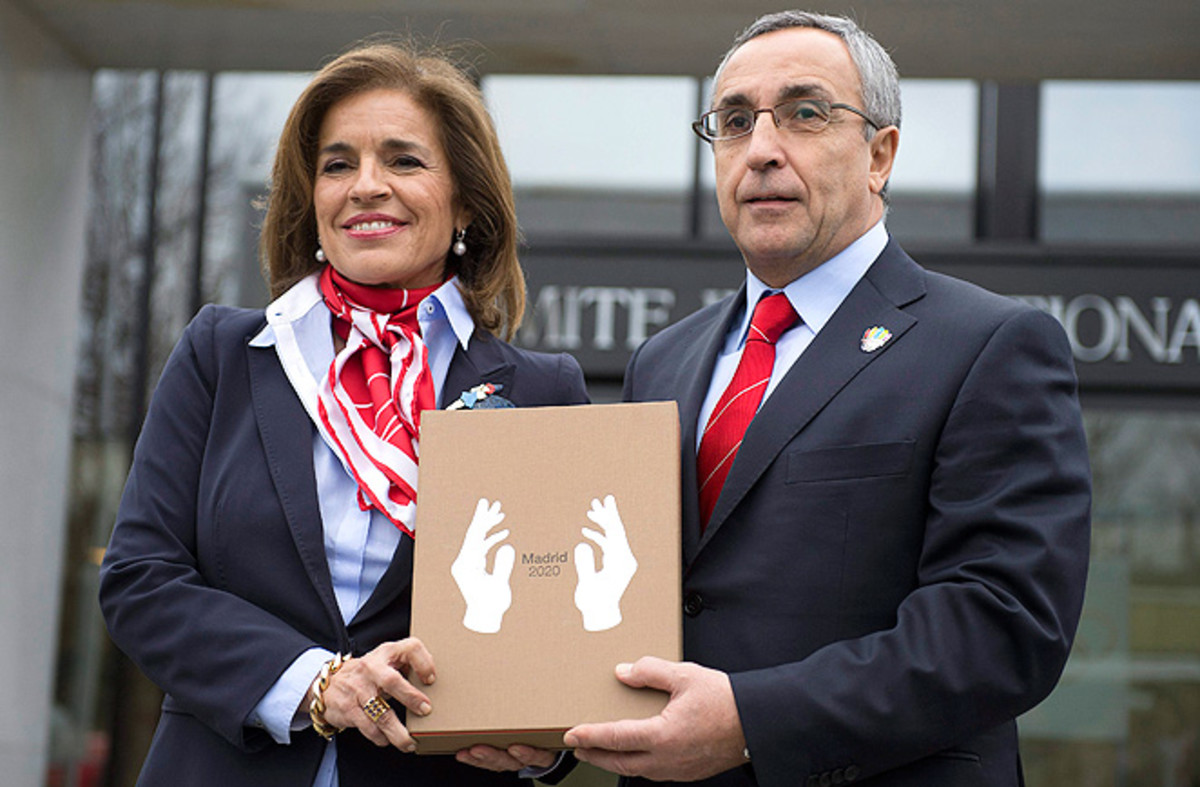Madrid hoping to win over IOC with frugal 2020 Olympic bid
MADRID (AP) -- With Spain mired in recession and buckling under deep austerity cuts, Madrid faces the tough task of convincing the IOC it has the resources to host the 2020 Olympics.
The IOC's evaluation commission will be in the Spanish capital next week to examine venues, finances, safety and other aspects deemed critical to securing the multibillion-dollar event.
Alejandro Blanco, president of the Spanish Olympic Committee, said the key is to show that Madrid's spendthrift approach is better suited for the games than that of fellow finalists Istanbul and Tokyo.
"The games can and should be organized under a `smart' concept of optimizing resources," Blanco told Spanish sports daily AS. "The major investment is already done and the remainder can be recovered easily through good organization.
"The important thing to tell the world is that the Olympics can be held in a dignified manner without throwing money away."
The bid committee says that 28 of the 35 venues are already built, and that its budget to finish preparations is $1.9 billion, plus an additional $192 million for security.
"No other bid can beat ours as far as venues and their proximity to one other," Blanco said. "But we also have to underscore our cost controls. The adjustment of our budget to the present circumstances of the world is what was needed."
Spanish Prime Minister Mariano Rajoy will greet the 14-member panel Monday, with Crown Prince Felipe providing closing remarks in support of Madrid on Thursday.
The commission already has visited Tokyo and will head to Istanbul from March 24-27. Its report will help the 100-plus IOC members select the host city by secret ballot Sept. 7 in Buenos Aires, Argentina.
Madrid is bidding for a third straight time after losing to London for the 2012 Olympics and Rio de Janeiro for 2016.
The other major concern for Madrid is Spain's tarnished reputation on fighting performance-enhancing drugs.
The government recently announced a tougher anti-doping law that it hopes will quell fears about its stance on doping. The bill has been fast tracked to make it through parliament by June or July before the IOC's final vote.
Meanwhile, the Operation Puerto trial into blood-doping in cycling continues next week in a Madrid court. Its outcome could influence IOC members.
"I think Madrid is in a good position," said Jose Ignacio Wert, Spain's sports minister. "I will show (the IOC) the government's commitment to the Madrid candidacy, but they will also see firsthand the important steps we have made in our infrastructure and the firm commitment we have made to fighting doping."
Barcelona hosted the 1992 Olympics. Those games were a huge boost to the city's stature as a budding tourist hot spot and helped usher Spain further into the world community after its seclusion during the Franco dictatorship that ended in the late 1970s.
Madrid now wants to emulate Barcelona's success, and hopes the games can clean up Spain's tattered image as a beleaguered state.
The Madrid bidders say the games would help Spain's struggling economy, providing jobs and a stimulus for investment in a country that is in the midst of a second consecutive recession and with unemployment at 26 percent.
Spain has been in economic distress since its property market imploded in 2008. With tax revenues plummeting, the government slashed spending to avoid having to ask for a painful bailout like Greece, Ireland, Portugal and Cyprus. This has led to a steady stream of citizen protests in defense of public services.
The IOC visit was to coincide with a strike by Madrid's transit workers, but they agreed to call off the strike Friday.






